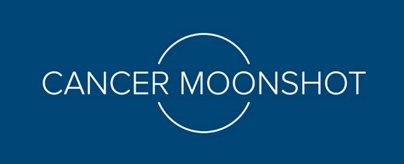Patrick Svitek, Texas Tribune
HOUSTON — In a sometimes emotional speech at Rice University, Vice President Joe Biden on Friday announced the next steps in his ambitious drive to facilitate a cure for cancer, unveiling new proposals to raise awareness of — and increase access to — clinical trials.
“Every day thousands of Americans hear that dreaded word, that C-word,” Biden said, speaking steps away from the hospital where his late son was first diagnosed with brain cancer. “What happens next is a difference between life and death. If there’s treatment there, then you know there’s hope, but for some people, hope is a clinical trial.”
“We know we can do better, and we’re about to,” he added
[iframe id=”http://abc13.com/video/embed/?pid=1514996″ align=”left” mode=”normal” autoplay=”no” aspect_ratio=”16:9″ maxwidth=”580″ grow=”no”]
Less than 5 percent of cancer patients in America choose to participate in clinical trials, often because they do not know much about them, Biden said. To that end, Biden unveiled a new website, Trials.Cancer.gov, that offers a searchable index of thousands of clinical trials.
Biden also announced the U.S. Food and Drug Administration is expanding the eligibility criteria for clinical trials, opening them up to more people — and more diverse people.
And in a move that he admitted might be controversial, he said he has directed the U.S. Department of Health and Human Services to create “real penalties” for researchers who do not share information obtained through clinical trials.
“In my humble opinion, it doesn’t make any sense” for researchers to withhold their findings, Biden said, acknowledging some may not want do so for competitive reasons. “We lose time.”
Biden’s remarks came a few days after the 54th anniversary of the famous speech in which former President John F. Kennedy declared the United States’ intention to go to the Moon. That speech was also delivered at Rice.
 “President Kennedy’s words are still ringing in my ear: ‘We are unwilling to postpone … for a minute, a day, a week, a month,'” Biden said. “Every great doctor in here can tell you — I guarantee you — he’s been asked by a patient, ‘Doc, can you give me just one more week so I can see my daughter down the aisle?’ ‘Doc, my first grandbaby’s coming. I need three months, doc. Just give me three months.'”
“President Kennedy’s words are still ringing in my ear: ‘We are unwilling to postpone … for a minute, a day, a week, a month,'” Biden said. “Every great doctor in here can tell you — I guarantee you — he’s been asked by a patient, ‘Doc, can you give me just one more week so I can see my daughter down the aisle?’ ‘Doc, my first grandbaby’s coming. I need three months, doc. Just give me three months.'”
“This is about today,” Biden added. “This is not about tomorrow.”
In his State of the Union address earlier this year, President Barack Obama assigned Biden to lead the Cancer Moonshot initiative to speed up cancer research. On Friday, Biden recalled his decision last year not to run for president, and how, when he informed Obama, Obama asked if he had any regrets. Biden said he replied he wanted to tackle ending cancer as the world knows it.
The mission is personal for Biden, whose son Beau died of brain cancer last year. He was first diagnosed and underwent treatment at M.D. Anderson Cancer Center in Houston, and some of the doctors who treated him were on hand Friday. Biden thanked them by name.
“When Beau was diagnosed,” Biden recalled, “we knew it was a death sentence. We understood it was a death sentence. So did he. But like any father or mother, we attempted to learn as much as we could about not just this particular cancer, but about any and all research that might help with our great Beau’s fight for his life.”
As part of his trip to Texas on Friday, Biden was also scheduled to attend two fundraisers for the Democratic Senatorial Campaign Committee, the campaign arm of Democrats in the U.S. Senate. One of the events was in Houston before Biden’s speech, while the other was set for the evening in Austin.
This story originally appeared in The Texas Tribune.
